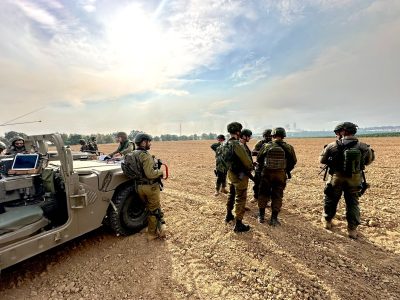Israel’s Genocide, Who’s in Charge of the IDF? Evidence Is Growing of a Command and Control Problem.

All Global Research articles can be read in 51 languages by activating the Translate Website button below the author’s name (only available in desktop version).
To receive Global Research’s Daily Newsletter (selected articles), click here.
Click the share button above to email/forward this article to your friends and colleagues. Follow us on Instagram and Twitter and subscribe to our Telegram Channel. Feel free to repost and share widely Global Research articles.
Spread the Truth, Refer a Friend to Global Research
***
Despite its reputation as a professional military that prides itself on being “the most moral military in the world,” the Israel Defense Forces’ (IDF) campaign against Hamas and other militant groups in Gaza has exposed serious command and control problems.
Before proceeding, it is worth noting that while the Israeli military is operating in an incredibly challenging environment in Gaza, where Hamas uses civilians as human shields, the human costs of its operations have been staggering; more than 38,000 Palestinians, many of them women and children, are dead, and over a million have been displaced in more than eight months of war. While some have argued that the IDF has done more than any army in history to protect enemy civilians, others have highlighted how Israel has not done nearly enough to protect innocent Palestinians in Gaza.
As Israel continues operations in Rafah, pushing into the city’s center, questions surrounding the use of U.S. military equipment will continue to proliferate, as seen in the catastrophic May 26 Israeli airstrike on a tent camp in Rafah that killed at least 45, which was conducted utilizing U.S. munitions.
Strategically speaking, the regional situation remains fraught. Hezbollah attacks on Israel in May were the most intense since October, as the IDF warns of offensive military action against its northern neighbor. In early June, an Israeli airstrike near Aleppo in Syria killed a top Iranian military advisor. (When the Israeli military killed a top Iranian general in Damascus in April, it led to the first direct Iranian attack on Israeli territory in history.)
Clearly, then, there is plenty of room for escalation. This renders the seeming lack of proper chain of command in Israel an even more urgent problem—and one in which U.S. support and arms are entangled.
Israel’s command and control issues are clearest in its alleged war crimes. The purpose of this piece is not to litigate which allegations are true but rather to examine the implications of those war crimes for the Israeli chain of command. Though these categories overlap, Israeli violations of international humanitarian law and the law of armed conflict in the war may be broadly grouped as follows: starvation, torture, mass executions, and the indiscriminate use of bombs, drones, and missiles.
Here are a handful of cases that most clearly suggest the command and control problems.
First, the Israeli military has blamed midlevel officers for the killing of seven World Central Kitchen volunteers in an early April drone strike. Numerous experts and nongovernmental organizations have noted the need for better coordination processes between humanitarian organizations and the IDF. Statements from the Israeli military and Coordination of Government Activities in the Territories (an Israeli governmental body responsible for implementing Israeli policies in the West Bank and Gaza Strip) indicate that World Central Kitchen properly coordinated its movements with the IDF but midlevel commanders made the decision to fire anyway. This suggests that the Israeli military’s command and control structures are not as strong as they ought to be.
Click here to read the full article on Foreign Policy.
*
Note to readers: Please click the share button above. Follow us on Instagram and Twitter and subscribe to our Telegram Channel. Feel free to repost and share widely Global Research articles.
Benjamin V. Allison, a Ph.D. candidate in history at the University of Texas at Austin, where he specializes in U.S. foreign and national security policy since 1945, especially toward the Middle East and Russia.
Featured image: Israeli soldiers around Gaza Strip on Oct. 7. (IDF Spokesperson’s Unit, Wikimedia Commons, CC BY-SA 3.0)

